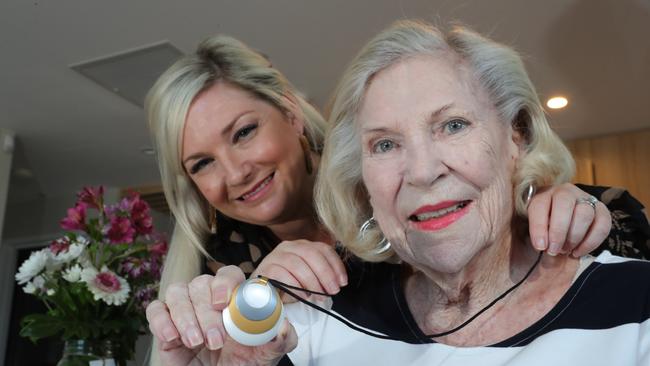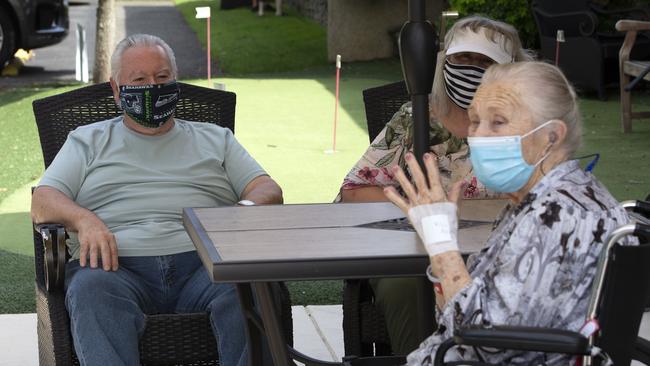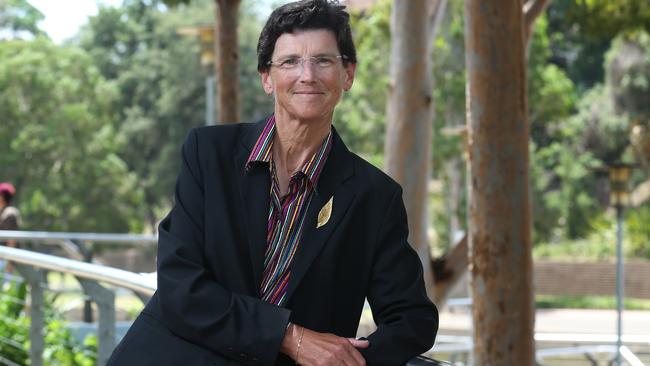Aged care royal commission: Paul Keating proposes ‘wealth account’
Elderly Australians should have a postpaid aged care funding account supported by the government to fund their retirement, similar to university HECS debts, former prime minister Paul Keating has proposed.
NSW
Don't miss out on the headlines from NSW. Followed categories will be added to My News.
Elderly Australians should have a postpaid aged care funding account supported by the government to fund their retirement, former prime minister Paul Keating has proposed.
Mr Keating told the aged care royal commission on Monday that Australians should have “wealth accounts” to fund home or residential aged care similar to HECS debts given to university students.
He proposed the government funds the accounts and then reclaims the funds by crediting the person’s estate only upon their death – through any leftover superannuation, cash, or investments.
“The commonwealth would advance money to a wealth account to pay for your home care or aged accommodation and then upon your death there would be a credit to that loan account from the estate of the deceased person,” he told the inquiry.
“(It can be credited to) their bricks and mortar assets or cash or other investments or residual super. I think such a system has a lot of advantages.

“It is the same as the HECS scheme. It will be income and asset contingent.”
Mr Keating’s proposal came after the aged care inquiry revealed that elderly Australians using home-based aged care services received an average of just 15 minutes of nursing care per fortnight despite the government forking out about $2.5b in home care funding.
Senior Counsel Assisting Peter Gray QC said there was a “disturbing” lack of adequate reporting mechanisms across the industry.
“Home care providers are not required to report to the government on what kinds of goods and services are provided with the home care package subsidies that the Commonwealth supplies, which amount to about $2.5b per year based on 2018-2019 data,” Mr Gray said.
“The Department of Health has recently conducted a survey of home care providers and the results have been disturbing. The survey revealed that in 2018-2019 there were negligible amounts spent on nursing in home care.”
MORE NEWS
NSW records just four COVID cases, 35 in VIC
Drug dealer gran out of prison
Australia to run out of home grown rice by Christmas
The inquiry heard that residential aged care providers received $11.7b a year in Commonwealth care subsidies and about $12.4b overall in care related revenue, including contributions from residents.
They also received addition fees for other services and deposits for accommodation.
Mr Gray said current the aged care structure gives providers free reign over these extensive funds with barely any need to report their expenditure to authorities.

“Residential care annual reporting requirements do not reveal how that money is used and what profit or loss is made in providing residential care services,” he said.
“There is no specific requirement on aged care providers to spend any particular portion of that money on care … there is no direct requirement to have any particular levels of staffing or provide any particular time of contact by staff with care recipients.”
He added that expenditure on a per capita basis for people aged 70 years and over had remained flat since the 1980s.
“As we have previously submitted, there should be mandatory (albeit somewhat flexible) staff contact time, and there should be acquittal of staffing costs. This will result in higher funding accompanied by public accountability for expenditure on care,” he said.
“The Commonwealth government took over full administrative and funding responsibility for aged care in 2012, but has not yet assumed a proactive system governance role. It should do so now, either directly or by appointing a dedicated independent body to do so.”
Mr Gray said several new initiatives need to be introduced to hold providers accountable for how they spent their dollars.
His proposal included stronger information gathering powers which would enable random audits, continuous financial disclosure requirements and a requirement on outsourcing arrangements.
PROVIDERS URGED TO TAKE ‘HOLISTIC’ APPROACH
Australian aged care providers should focus on more “holistic” care for elderly citizens instead of just medical care, the Aged Care Royal Commission previously heard.
Ageing and health expert Professor Lee-Fay Low said providers need to focus on creating a person-centred care model.
“Quality of life includes psychological wellbeing … not just daily function and physical health,” she said.
“We should be thinking holistically about people and safety isn’t just physical safety. It isn’t preventing falls, it’s that the person is lonely and might be safer if they have companionship.

Prof Low said the aged care system it is important the government is not just spending funds on aged care but also evaluating the expenditure.
But Aged Care Quality Commission head Janet Anderson told the inquiry the watchdog had switched from making unannounced visits to facilities to giving them notice.
“Through the pandemic the change we made was to move from unannounced visits to short notice visits. For a period of around 10 to 11 weeks, we undertook visits after giving the provider 24-48 hours’ notice,” she said.
“(This) was so they could tell us about their infection prevention and control measures and we could give them assurances about our control settings for our assessment workforce.”
Ms Anderson was unable to tell the inquiry how many such visits her commission made to home care facilities during the quarter to June 30, 2020.
Senior Counsel Assisting Peter Gray QC levelled criticism at the Aged Care Quality and Safety Commission, the sector regulator, for not providing sufficient oversight of those who are providing home care services.
Another challenge was how to ensure older people‘s wishes are heard.
Currently about one million older Australians receive aged care at home. By 2050, that number will more than triple to 3.6 million.
The forecast is that there will also be three times as many in residential care rising from 200,000 now to 600,000.
Mr Gray said more than 250,000 people were receiving services through the Commonwealth Home Support Programme, yet he was “concerned” about the very little expenditure of home care packages on either nursing or allied healthcare.
In the 2018 -19 financial year, there was an average of .11 of an hour spent per fortnight by registered nurses providing nursing care.
“Even for the most complex level of needs we are only looking at about a quarter of an hour of registered nursing time (spent) per person per fortnight,” Mr Gray said.

REVEALED: 29 of 44 NSW AGED CARE HOMES FAILED CHECKS
Aged care regulators relied on phone and online surveys to ensure nursing homes were safe during the peak of the pandemic despite knowing two in three NSW facilities previously failed in-person checks.
Remote assessments and short-notice visits were the only way the Aged Care Quality and Safety Commission monitored homes between March 16 and June, even though serious issues had been identified during site audits on the eve of the coronavirus crisis.
The Daily Telegraph can reveal 29 out of 44 NSW nursing homes audited by the Commission from January to March did not meet care standards – a failure rate of 65.9 per cent.

MORE NEWS
Hidden health crisis killing 2000 Australians every year
Revealed: Most in-demand jobs in regional NSW
The situation in NSW was much worse than the national average, where 41 per cent of aged care homes audited did not meet requirements.
The Commission temporarily ceased unannounced site visits to reduce infection risks, but Deputy Chief Medical Officer Professor Michael Kidd said yesterday (TUE) health advice on that issue had not been sought from the Australian Health Principal Protection Committee.
“I’m not aware of the AHPPC being asked for advice about whether there should have been any cessation of visits,” he said.
“It is important though … that visits do take place in person so that people are able to see for themselves that each facility is doing everything that it can and should be doing to protect the health and wellbeing of the residents in those facilities.”

Commissioner Janet Anderson said the Commission “modified” its regulatory program to minimise infection risks to consumers, staff and employees.
“Throughout the pandemic, the Commission has continued its monitoring and compliance activities, including conducting short notice – typically 24-48 hours – site visits, to monitor and assess the quality of care at aged care services,” she said.
Ms Anderson said the Commission conducted a telephone assessment of every aged care approved provider and two online surveys.
Nationally, 99.5 per cent of aged care home who completed one self-assessed online survey declared they were prepared for COVID-19.

The audits conducted before March identified five aged care homes in NSW as the worst offenders in the country, failing more than 20 different requirements each.
The most common standard not met by aged care facilities in the first three months of 2020 was providing “safe and effective personal and clinical care”.
Other major problems included workforce shortages and issues with risk management.
Labor’s aged care spokeswoman Julie Collins said it was “completely unacceptable” so many nursing homes in NSW weren’t “up to scratch” prior to the COVID-19 pandemic.
“This shocking new evidence reveals just how broken our country’s aged care system was on the eve of the COVID-19 pandemic,” she said.
